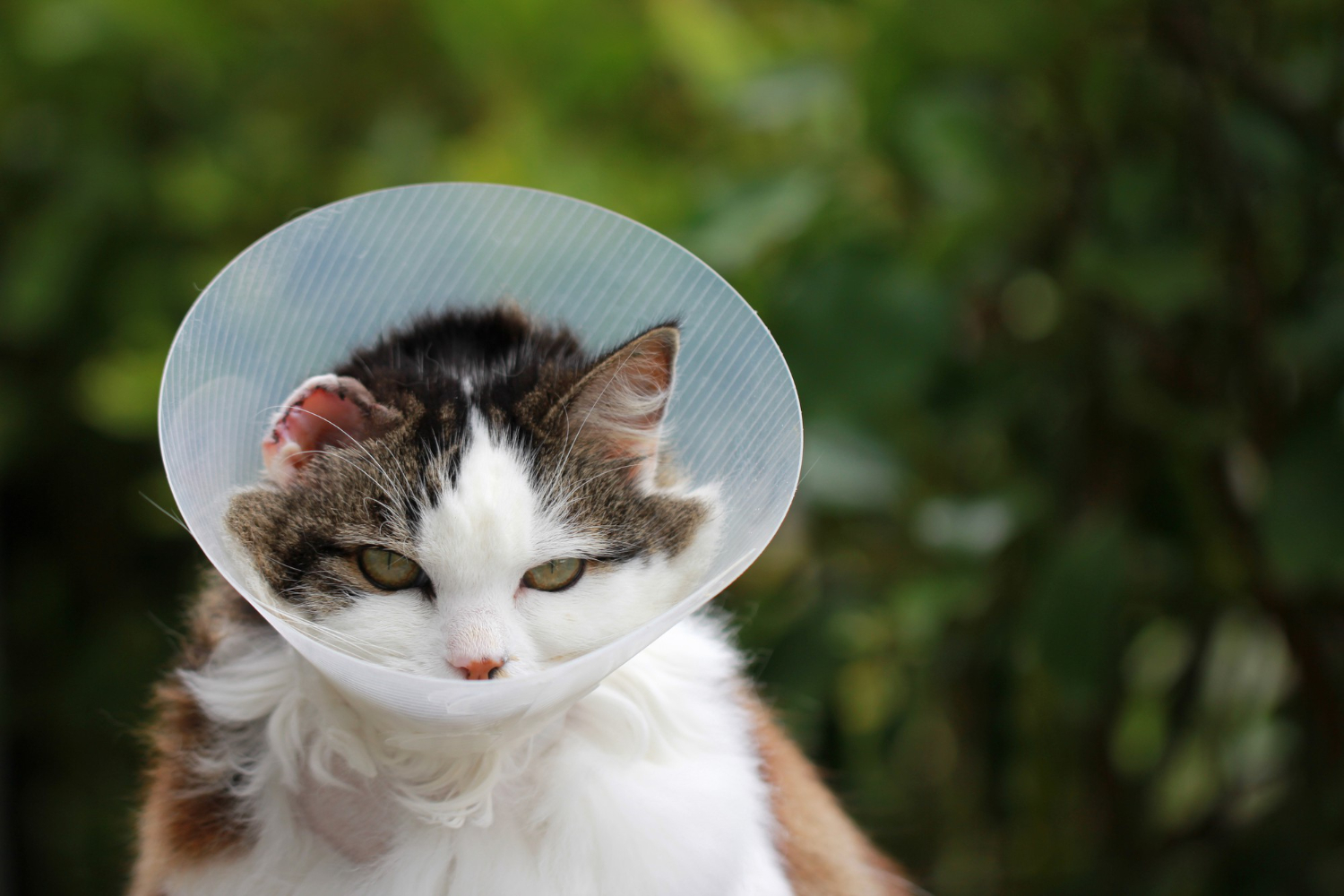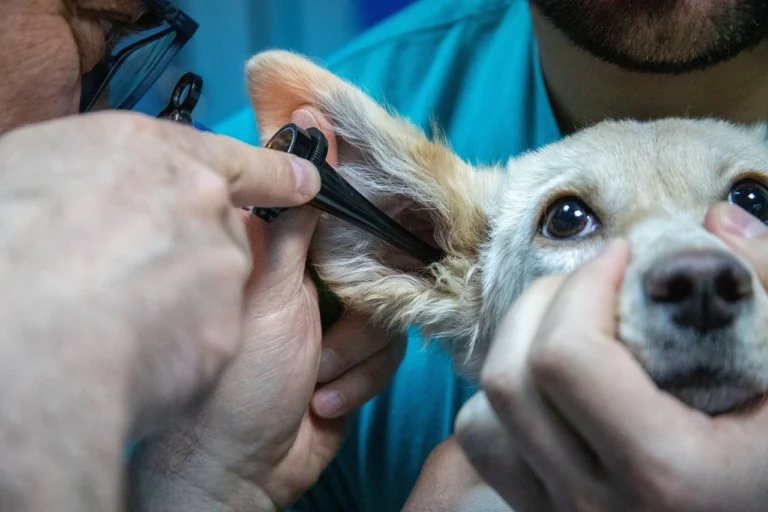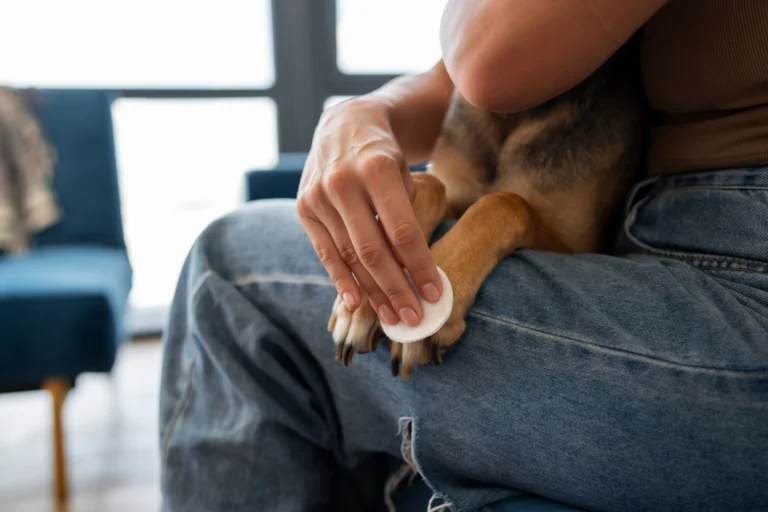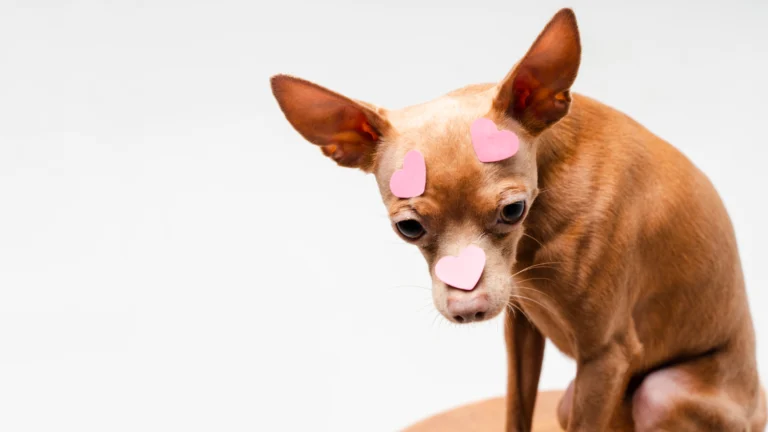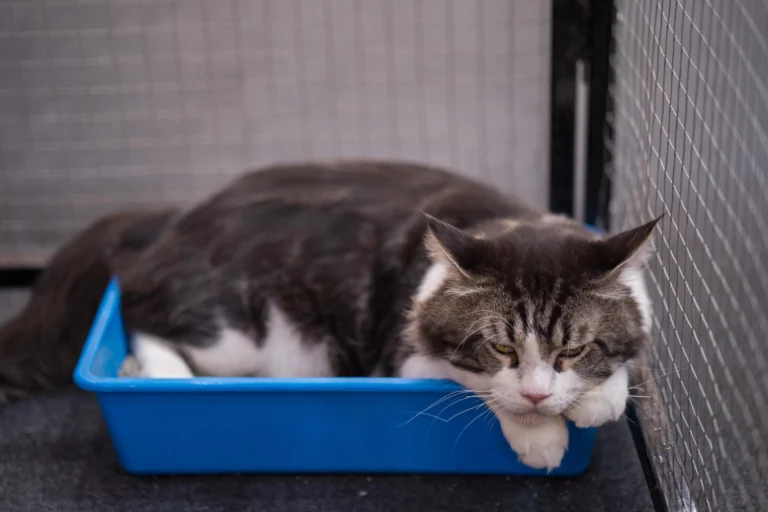7 Natural flea remedies for your Cat : Effective and Safe
Table of Contents
As a cat owner, there’s nothing worse than seeing your beloved companion struggle with the discomfort of fleas. You might notice them scratching incessantly or biting at their fur, and it’s heart-wrenching. Fleas are not only an itchy nuisance but also a potential threat to your cat’s health. But don’t worry—there’s a way to help your furry friend feel better without exposing them to harsh chemicals. Natural flea remedies for cats are an effective and safe alternative that you can easily incorporate into your pet care routine.
In this article, you’ll discover various natural solutions to keep fleas at bay and protect your cat from the discomfort they bring. We’ll explore these remedies in detail, how to use them correctly, and why they’re so effective in keeping your cat happy and flea-free. Let’s dive in!
Understanding Fleas and Why Natural Remedies Are Important
Before jumping into the remedies, it’s important to understand why fleas are a problem for cats and why you should consider natural treatments. Fleas are tiny insects that feed on your cat’s blood, causing irritation, allergic reactions, and sometimes even more serious health issues like anemia or tapeworm infections. They can quickly infest your home and make life uncomfortable for both you and your cat.
Unfortunately, many chemical flea treatments come with potential side effects, including skin irritations, nausea, and even long-term health risks. For these reasons, more and more pet owners are turning to natural flea remedies, which offer a gentler approach without compromising effectiveness.
Natural remedies are not only safer for your cat, but they’re also more eco-friendly, avoiding harmful chemicals that can pollute the environment. Now that we know the importance of using natural methods, let’s explore seven highly effective remedies that you can start using right away!
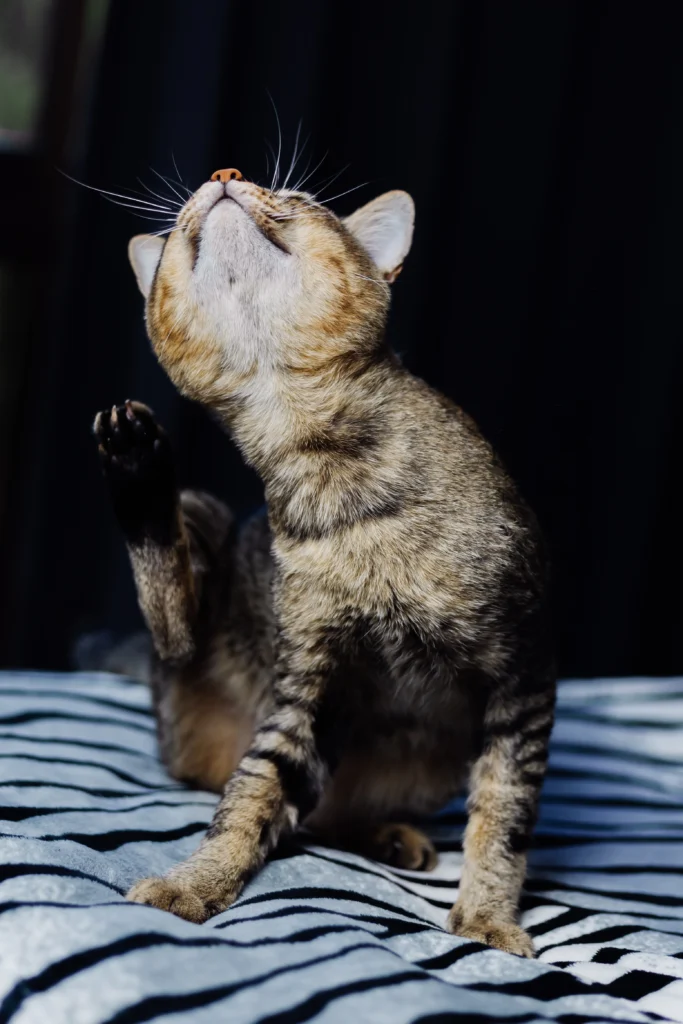
7 Effective Natural Flea Remedies for Cats
1. Diatomaceous Earth: A Safe, Non-Toxic Flea Killer
Diatomaceous earth (DE) is a fine powder made from the fossilized remains of tiny aquatic organisms. It works by dehydrating fleas and killing them naturally. DE is safe for your cat when applied correctly, and it’s non-toxic, making it an excellent option for those who want to avoid chemicals.
How to Use Diatomaceous Earth:
- Sprinkle food-grade diatomaceous earth lightly on your cat’s fur and bedding.
- Leave it for 24 hours and then vacuum thoroughly to remove the powder and any dead fleas.
- Ensure that you’re using food-grade DE, as other types may be harmful to your cat.
Safety Tip: Avoid applying DE near your cat’s eyes or nose, as the fine particles can irritate their respiratory system.
2. Apple Cider Vinegar: A Flea-Repellent Solution
Apple cider vinegar (ACV) is a great natural flea repellent due to its acidity and strong odor, which fleas dislike. When used properly, it’s an effective way to keep fleas at bay without harming your cat’s skin.
How to Use Apple Cider Vinegar:
- Mix one part apple cider vinegar with one part water to create a flea-repelling spray.
- Lightly mist your cat’s fur, avoiding their face and eyes.
- You can also add ACV to your cat’s drinking water, but only a small amount (about a teaspoon) to prevent digestive issues.
Additional Benefits: Apple cider vinegar helps to restore the pH balance of your cat’s skin, keeping it healthy and flea-resistant.
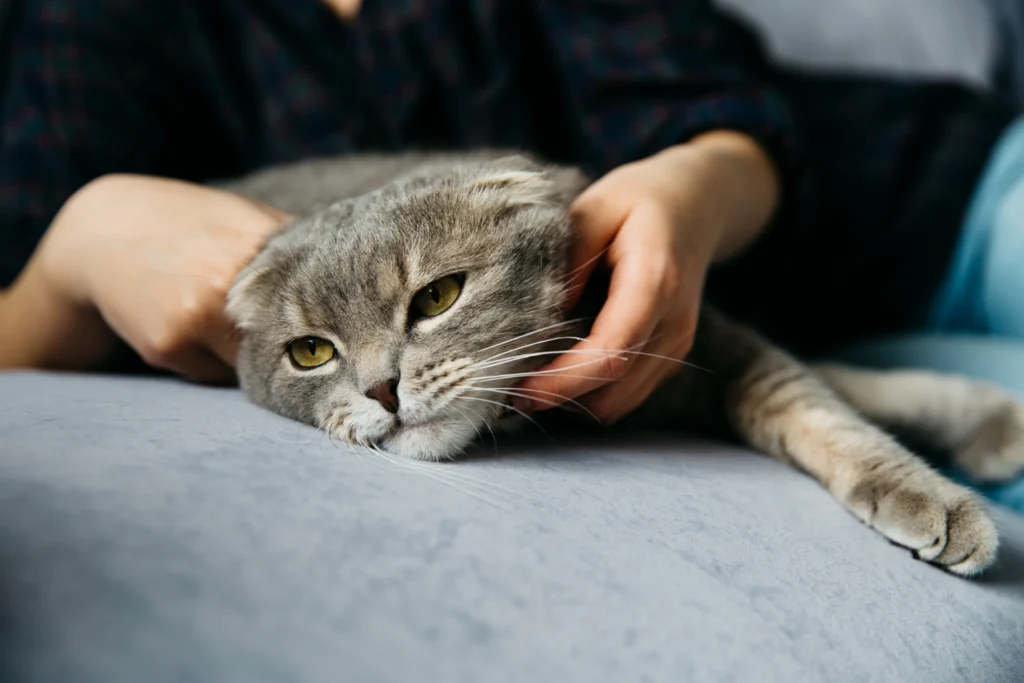
3. Coconut Oil: Moisturizing and Flea-Repellent
Coconut oil is known for its moisturizing properties and can be used as a natural flea repellent. It’s gentle on your cat’s skin, and its lauric acid content helps kill fleas by breaking down their exoskeletons.
How to Use Coconut Oil:
- Rub a small amount of coconut oil between your hands until it melts and then gently massage it into your cat’s fur.
- Focus on areas where fleas are commonly found, like the base of the tail and under the belly.
- Be sure not to overapply, as too much oil can make your cat’s coat greasy.
Pro Tip: Coconut oil not only repels fleas but also improves your cat’s coat, making it shiny and soft.
4. Essential Oils: A Natural Flea Repellent (Use with Caution)
Certain essential oils, like lavender and eucalyptus, are known for their flea-repelling properties. However, essential oils must be used with great care, as some oils can be toxic to cats if not diluted properly.
How to Use Essential Oils Safely:
- Mix a few drops of a cat-safe essential oil (like lavender or lemongrass) with a carrier oil such as coconut oil.
- Rub the diluted mixture onto your cat’s collar or bedding, but never apply it directly to their skin.
- Always ensure the essential oils you use are safe for cats—never use oils like tea tree or citrus oils, as they can be toxic.
Safety Tip: Always consult your veterinarian before using essential oils on your cat, especially if your cat has underlying health issues.
5. Herbal Flea Collars: Nature’s Flea Defense
Herbal flea collars are a great alternative to traditional chemical collars. Made with natural herbs like neem, peppermint, and rosemary, these collars provide a long-lasting, gentle solution to flea problems.
How to Make Your Own Herbal Flea Collar:
- Take a plain collar and soak it in an herbal flea-repellent solution (you can mix essential oils with water and a bit of alcohol).
- Allow the collar to dry completely before putting it on your cat.
- The herbs in the collar will release a pleasant aroma that keeps fleas away without harming your cat.
Tip: Ensure that the collar is not too tight and always supervise your cat while wearing it, especially when first trying a new remedy.
6. Flea-Repelling Herbs in Your Cat’s Diet
Certain herbs like mint, rosemary, and lemongrass can help repel fleas when added to your cat’s diet. These herbs contain compounds that fleas dislike, offering a natural way to keep them at bay.
How to Add Herbs to Your Cat’s Diet:
- You can chop fresh mint or rosemary leaves and sprinkle them over your cat’s food.
- Alternatively, consider using cat-safe herbal powders that are specifically designed for flea prevention.
- Start with small amounts and observe your cat for any signs of allergies or sensitivities.
Important: Always consult with your vet before adding new herbs to your cat’s diet, especially if they have underlying health conditions.
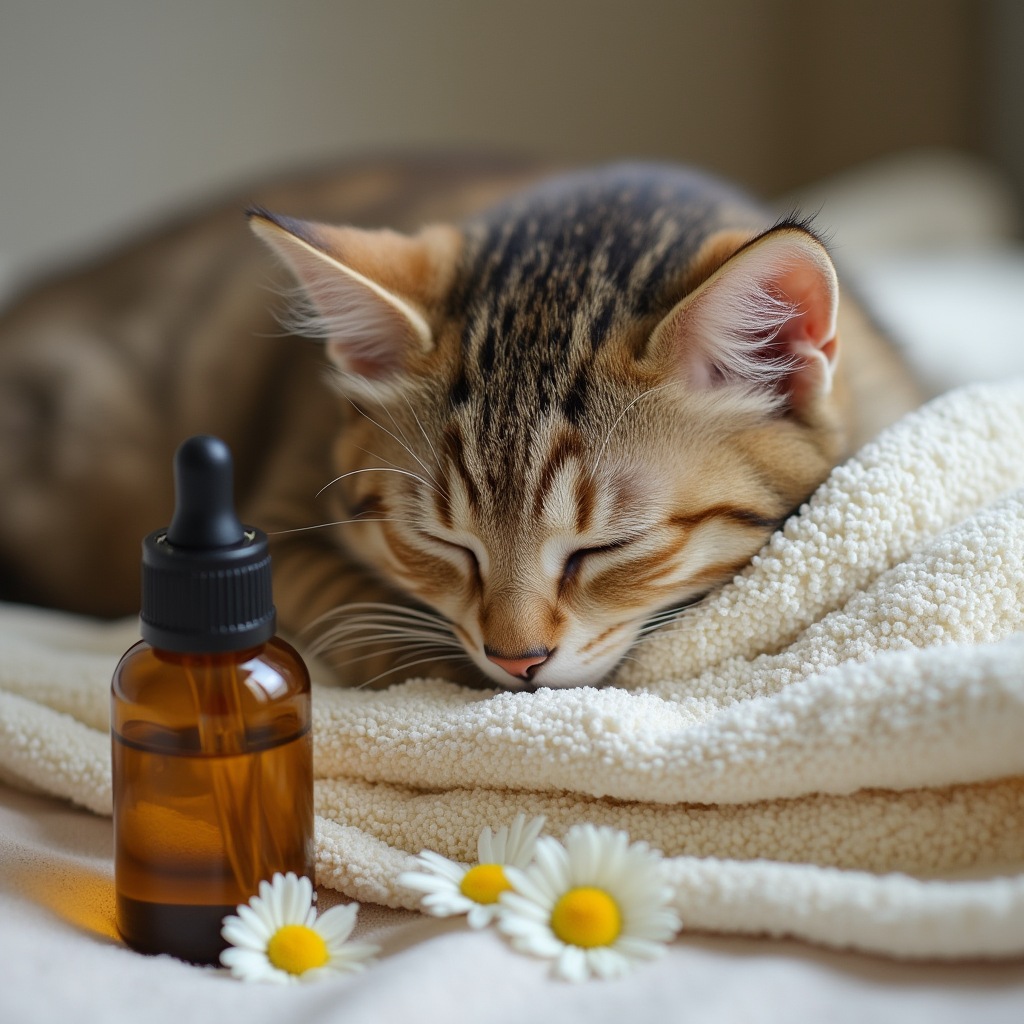
7. Flea Baths with Natural Ingredients
A flea bath can be a highly effective way to remove fleas from your cat’s fur, especially when combined with natural ingredients like baking soda, herbal infusions, or mild dish soap.
How to Prepare a Natural Flea Bath:
- Mix baking soda with water to form a paste, then gently rub it into your cat’s fur.
- Alternatively, you can use an herbal infusion, such as chamomile or eucalyptus tea, to rinse your cat after shampooing.
- Be sure to rinse your cat thoroughly to avoid skin irritation.
Pro Tip: Bathing can be stressful for some cats, so take it slow and make the experience as calm and pleasant as possible.
How to Prevent Fleas Naturally: Tips for Ongoing Protection
Once you’ve treated your cat for fleas, the next step is prevention. Here are some tips to ensure that fleas don’t come back:
- Regular Grooming: Use a flea comb to comb through your cat’s fur regularly. This helps to catch fleas and eggs before they have a chance to spread.
- Clean Your Home: Fleas can hide in carpets, furniture, and bedding. Vacuum your home frequently and wash your cat’s bedding in hot water.
- Essential Oils for the Environment: Diffuse lavender or eucalyptus oil in your home to naturally repel fleas from your living spaces.
Natural Flea Remedies for Cats: When to Seek Veterinary Help
While natural remedies are effective, there may be times when they aren’t enough, and you need to consult your vet. If your cat has a severe flea infestation or is showing signs of flea-related illnesses, professional intervention may be required. Fleas can lead to serious health issues like anemia, skin infections, or tapeworms, so it’s essential to monitor your cat closely.
Conclusion: Keeping Your Cat Flea-Free with Natural Remedies
Your cat deserves the best care, and that includes protecting them from the discomfort of fleas. Natural flea remedies offer a safe, gentle, and effective way to manage and prevent flea infestations. By incorporating some of these remedies into your cat’s routine, you’ll help them live a more comfortable and happy life. Remember to always consult with your vet before introducing new treatments to ensure that your cat’s health is never compromised. Start using these natural remedies today and say goodbye to fleas for good!
If you found these natural flea remedies helpful, don’t hesitate to share this article with fellow cat owners who may be struggling with the same issue. For more pet care tips and natural solutions, subscribe to our newsletter or check out our other articles!

